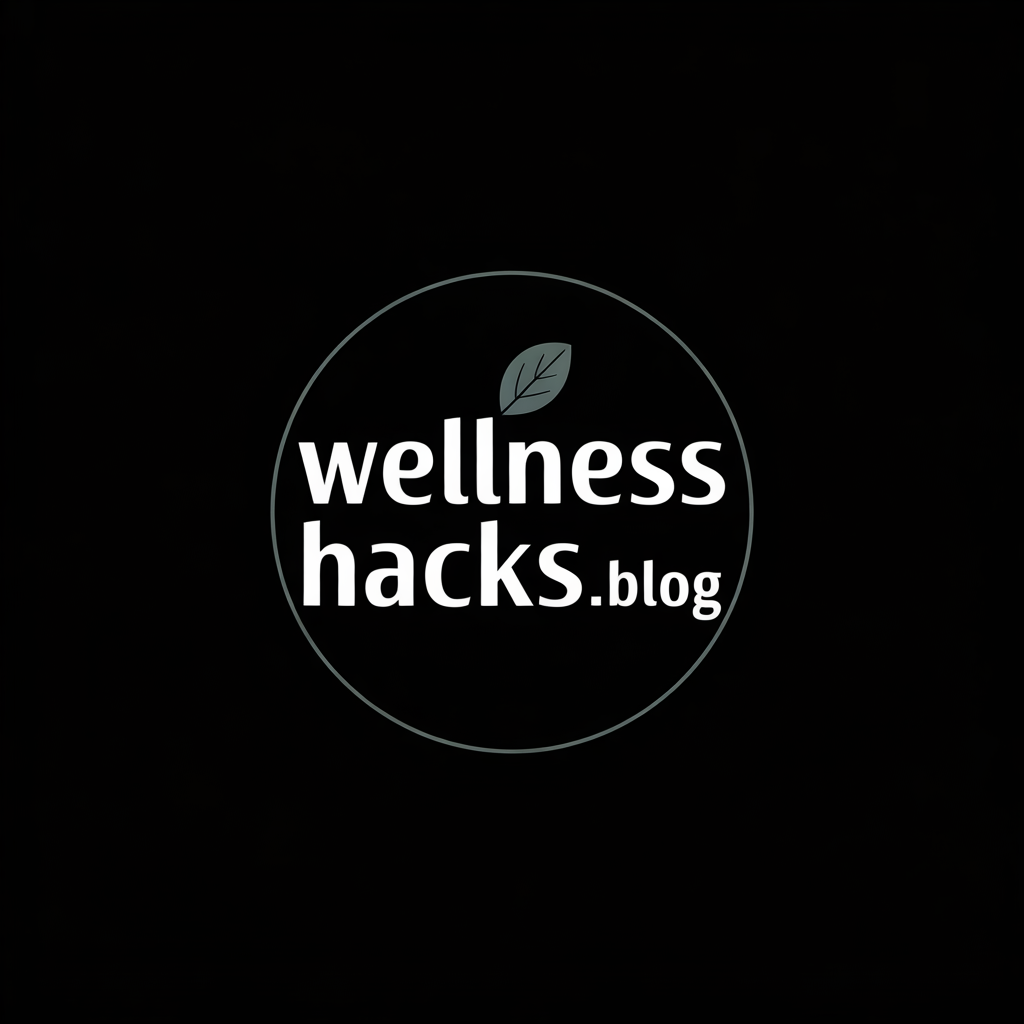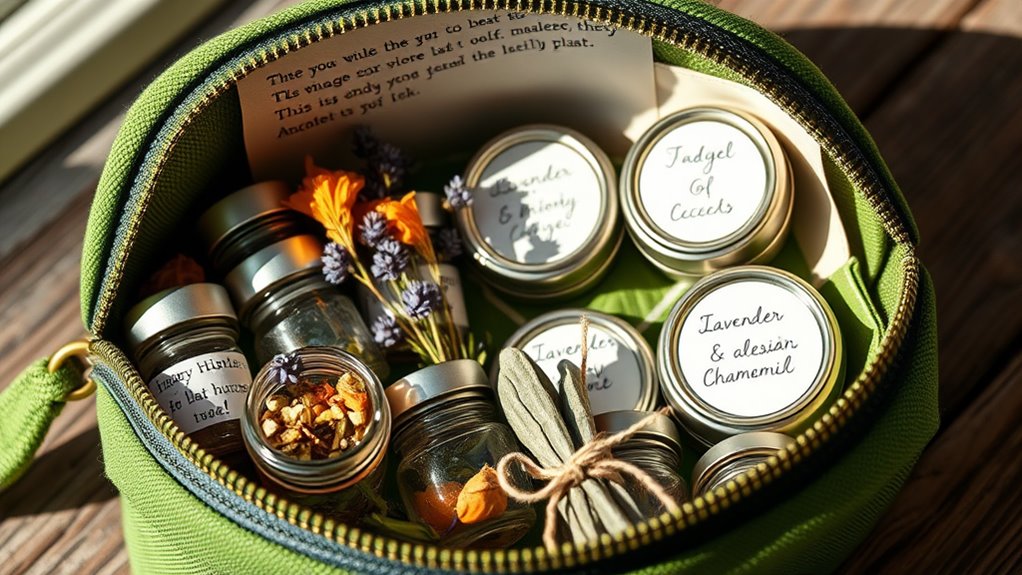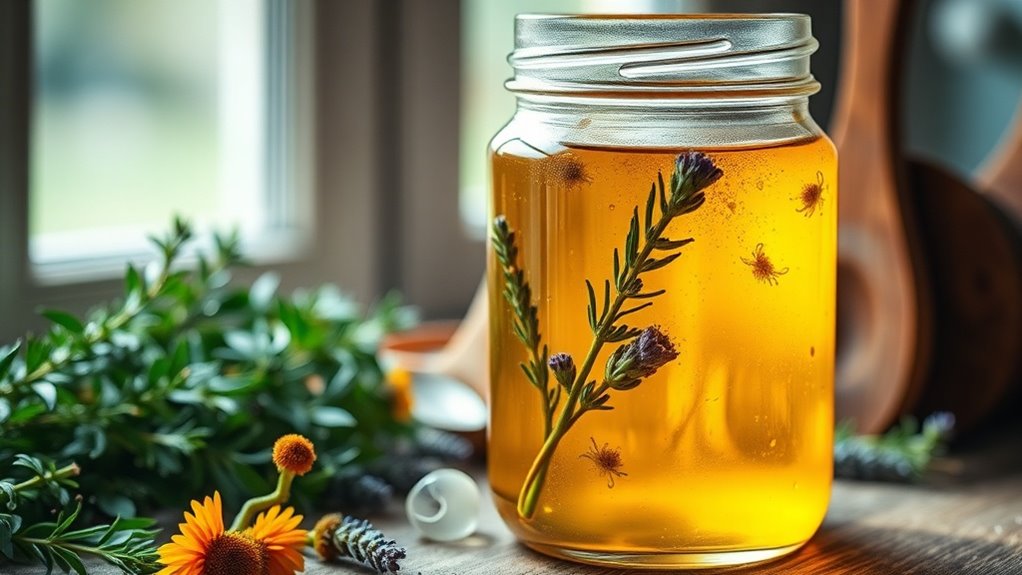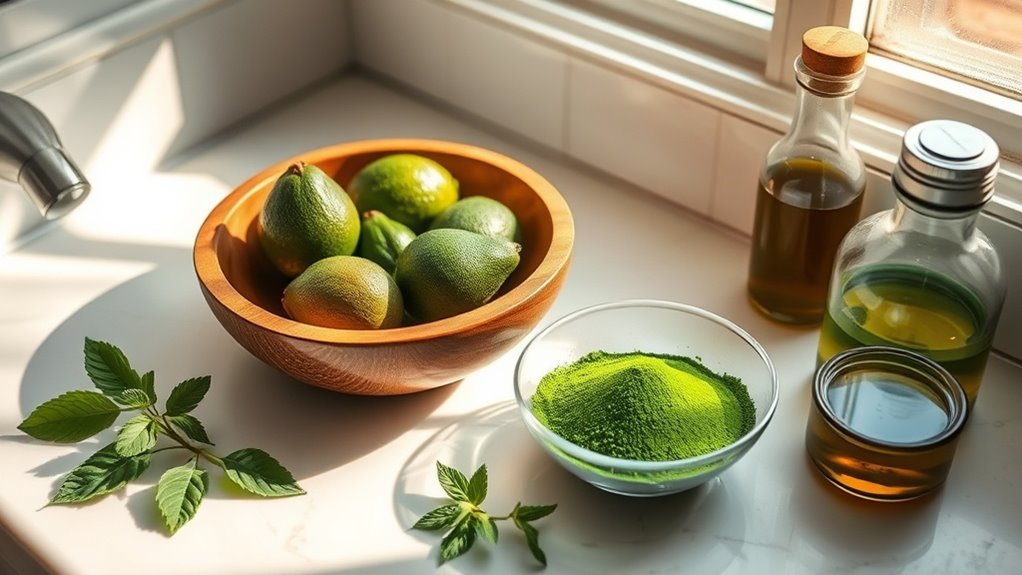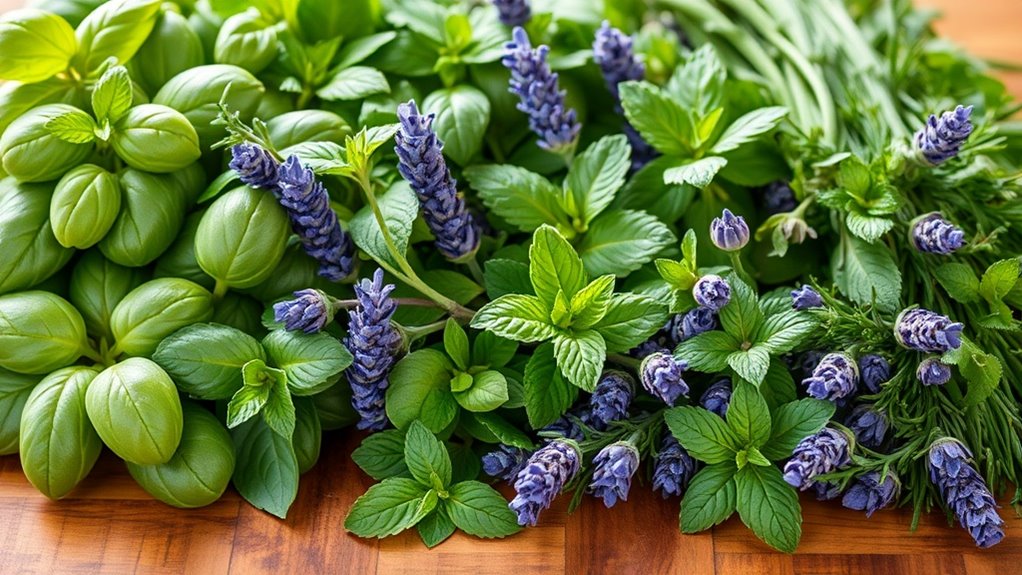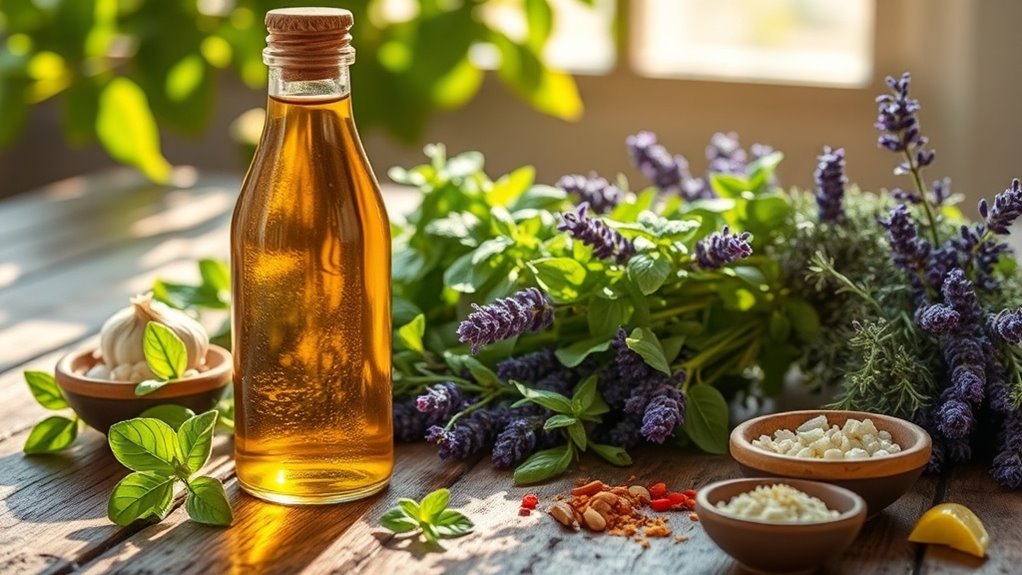What I Keep in My Mini Herbal First-Aid Kit
In your mini herbal first-aid kit, you’ll want essential oils like lavender for calming and tea tree oil for its antiseptic properties. Include herbal salves with calendula for inflammation and comfrey for tissue repair. Dried herbs like chamomile and peppermint can be used for soothing infusions. Don’t forget homeopathic remedies such as arnica for bruises, and always have natural antiseptics on hand. With these essentials, you’re ready for minor ailments, and there’s so much more to explore!
Essential Oils for Healing
Essential oils are powerful allies in your healing journey, offering a natural approach to address various ailments. Understanding herbal basics is essential to using these oils effectively. For instance, lavender calms your mind, while tea tree oil’s antiseptic properties can support skin health. Peppermint can soothe headaches, and eucalyptus clears respiratory pathways. When incorporating these oils into your routine, you can diffuse them, apply them topically, or mix them in a carrier oil. Always remember to test for sensitivities first. Additionally, keeping common ailments in mind can help you choose the right oils for your needs. With a few essential oils in your mini herbal first-aid kit, you’re well-equipped for holistic healing whenever you need it.
Herbal Salves and Ointments
Have you ever wondered how herbal salves and ointments can enhance your first-aid toolkit?
These potent remedies harness the healing power of nature, providing relief for minor cuts, scrapes, and burns. Ingredients like calendula soothe inflammation, while comfrey promotes tissue repair. Incorporating a versatile multi-use herbal oil in your salve recipe can elevate its effectiveness by adding additional healing properties.
You can easily apply these salves directly to affected areas, allowing the skin to absorb their therapeutic properties. Unlike synthetic options, herbal ointments often contain nourishing oils and waxes that moisturize and protect your skin.
Dried Herbs for Infusions
Dried herbs for infusions offer a simple yet effective way to incorporate the healing benefits of plants into your first-aid regimen.
When you need a soothing remedy, consider these powerful herbs:
- Chamomile: Known for its calming properties, it can help ease digestive issues and promote relaxation.
- Peppermint: This invigorating herb aids in digestion and can relieve headaches with its cooling effect.
- Echinacea: Famous for its immune-boosting abilities, it’s perfect for warding off colds and infections. Additionally, you can create a relaxing beverage with easy herbal tea that combines these soothing herbs for a delightful infusion.
Homeopathic Remedies
When it comes to homeopathic remedies, you’ll find a wealth of options tailored to various ailments. These natural solutions can offer gentle support, but it’s important to understand their proper usage and any precautions to consider. Additionally, incorporating essential herbs into your home remedies can enhance their effectiveness.
Common Homeopathic Remedies
Homeopathic remedies offer a gentle and effective approach to treating a variety of common ailments, making them a valuable addition to your herbal first-aid kit.
Here are three remedies you should consider:
- Arnica montana: Perfect for bruises and muscle soreness, it helps reduce pain and inflammation.
- Calendula officinalis: Known for its soothing properties, it promotes healing for minor cuts and scrapes.
- Nux vomica: Ideal for digestive discomfort or hangovers, it aids in restoring balance.
These homeopathic options can support your body’s natural healing processes, ensuring you’re prepared for everyday mishaps.
Usage Guidelines and Precautions
Using homeopathic remedies can be a wonderful way to enhance your natural healing toolkit, but it’s important to follow some guidelines to ensure safe and effective use.
Always consult a qualified practitioner before starting any remedy, especially if you’re pregnant or have existing health conditions.
Start with a low potency and observe how your body responds; this helps you gauge effectiveness.
Be mindful of expiration dates and store remedies in a cool, dry place away from strong odors.
Lastly, remember that homeopathy complements, but doesn’t replace, conventional medical treatment when needed. Trust your intuition and embrace your holistic healing journey!
Natural Antiseptics
Natural antiseptics can be powerful allies in your mini herbal first-aid kit.
They help cleanse and protect your skin from infection.
Here are three potent options to consider:
- Tea Tree Oil – Known for its antimicrobial properties, it’s great for minor cuts and scrapes.
- Lavender Essential Oil – This soothing oil not only disinfects but also promotes relaxation.
- Calendula – With its anti-inflammatory effects, calendula salve speeds up healing and reduces irritation.
Incorporating these into your kit ensures you’re well-prepared for minor mishaps. Additionally, essential oils can also be used effectively for various purposes, enhancing your home wellness routine.
Herbal Teas for Comfort
When you’re seeking comfort, herbal teas can be your soothing allies. Blends like chamomile and peppermint not only calm your mind but also support digestion, while nighttime infusions help you unwind after a long day. Let’s explore how these gentle brews can enhance your well-being and bring you the relief you crave. Additionally, soothing tea rituals can significantly elevate your self-care routine, making those moments of tranquility even more special.
Soothing Herbal Blends
Herbal teas offer a comforting embrace for both body and mind, making them an essential part of any soothing herbal first-aid kit.
When you need a moment of tranquility, consider these blends:
- Chamomile: Known for its calming effects, it helps ease stress and promotes restful sleep.
- Lavender: This fragrant flower not only soothes your senses but also uplifts your mood and alleviates anxiety.
- Peppermint: Refreshing and invigorating, it clears your mind and provides a gentle energy boost.
Incorporating these herbal teas into your routine will enhance your self-care, nurturing your overall well-being.
Digestive Aid Teas
Digestive discomfort can disrupt your day, but a warm cup of tea can make a world of difference.
Herbal blends like peppermint or ginger root soothe your stomach, easing cramps and bloating.
Fennel seeds, known for their carminative properties, help reduce gas and promote digestion.
Chamomile, with its gentle floral notes, not only calms your mind but also relaxes your digestive tract.
You can sip these herbal teas throughout the day or after meals to enhance your comfort.
Calming Nighttime Infusions
As the day winds down and the world quiets, a soothing cup of tea can help you drift into a restful night.
Herbal infusions are your allies for relaxation, promoting tranquility and comfort.
Consider these calming options:
- Chamomile – With its delicate floral notes, it eases tension and promotes sleep.
- Lavender – Its calming aroma soothes the mind, helping you unwind from the day’s stresses.
- Lemon Balm – This refreshing herb reduces anxiety and encourages a sense of peace.
Sip slowly, allowing the warmth to envelop you, and let nature guide you into a serene slumber.
Healing Crystals and Their Uses
Healing crystals have gained popularity as powerful tools in holistic wellness, offering a natural approach to emotional and physical healing. You can harness their unique energies to support your well-being. For instance, amethyst calms the mind, while rose quartz opens the heart. Each stone has its distinct properties to enhance your healing journey. Additionally, understanding how to select and use crystals can further enhance their benefits.
| Crystal | Use |
|---|---|
| Amethyst | Calming and stress relief |
| Rose Quartz | Love and emotional healing |
| Citrine | Abundance and positivity |
| Black Tourmaline | Protection and grounding |
Incorporating these crystals into your routine can elevate your self-care practices.
Practical Storage Solutions
A well-organized herbal first-aid kit not only simplifies access to remedies but also enhances your ability to respond to minor health issues swiftly. To create your ideal storage solution, consider these three practical options:
- Clear, Stackable Containers: Use these to keep your herbs visible and sorted, making it easy to grab what you need.
- Labeling System: Clearly label each container with the contents and their uses, eliminating confusion during emergencies.
- Portable Pouches: Opt for lightweight, zippered pouches to transport your kit effortlessly, whether you’re heading outdoors or just moving from room to room. Additionally, incorporating essential ingredients from your natural pantry can further bolster your herbal remedies.
Stay prepared and empowered!
